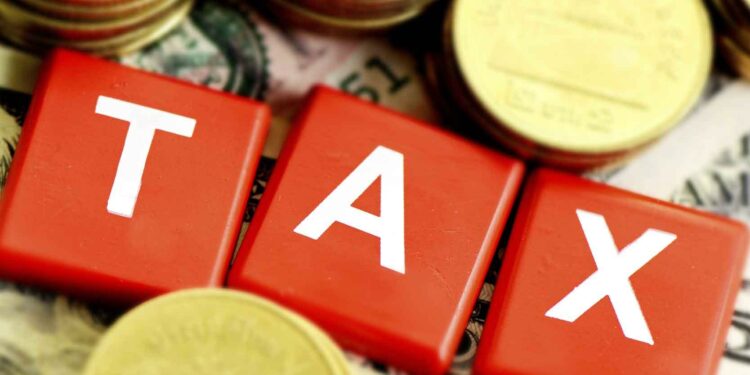Nigerian manufacturers pay 74 different taxes – Economist
The Chief Consultant of B. Adedipe Associates Limited, Dr Biodun Adedipe, said that Nigerian manufacturers are confronted with about 74 different taxes from their factory to the market and down to the final consumer.
Adedipe disclosed this while speaking at this year’s edition of the FirstBank Nigeria Economic Outlook.
He also used the occasion to urge the Federal Government to do something about the ease of doing business to make the country more globally competitive.
He stressed that such an operating environment hinders the ease of doing business and needs to be addressed by the government, hopefully by the incoming government.
Adedipe noted that accelerated manufacturing and focused export will bring some stability to the naira exchange rate.
Forecast on inflation and MPR: According to him inflation rate is expected to moderate, but still double digit on the expectation of 17.76% while monetary policy normalization could start as early as Q2’2023 but assured for H2 with downward adjustment of MPR certain for H2 expected to be at 13.5%.
Government expenditure: He said economic stakeholders need to engage the Federal Government to begin to look at expenditure differently.
“If 50% of our population is below 18 years of age the question will be that investment in education and health should be treated as social capital.
“Maybe we should be looking at current expenditure and break it into components, the potion that relates to education and health will be treated as social infrastructure and taken as investment, maybe when we begin to do things that way and also deal with curriculum and ensure that it allies also with work so that we will be producing graduates that fit into the needs of industries,” he said.
Oil price: Adedipe noted that Nigeria has not been able to take advantage of the favourable crude oil price trend because of weak production and export in 2021 and 2022 which have been particularly bad.
“The resulting fiscal trouble is manifest in an inability to generate enough revenue to meet maturing obligations and a significant portion of revenue going into debt servicing and repayment obligations.
It is obvious then where the solution to Nigeria’s fiscal woes lies is to produce/export more hydrocarbons (until non-oil revenue becomes strong enough to sustain fiscal needs) and courageously address the cost of governance,” he said.
Global energy crisis: On what will be the likely impact of the global energy crisis if Russia and Ukraine war continues and how it will impact Nigerian businesses, Chief Analyst / Founder, Mr Ugodre Obi-Chukwu said with the oil prices at about $83 per a barrel means that Nigeria is slightly going to be above her benchmark which will not translate to enough savings for the country’s external reserve this year.
He noted that there is also a potential risk as Russia would likely sell more oil to India and most Asian countries this year which may affect Nigeria’s sales in that part of the world.
“Let us remember that India is Nigeria’s top oil purchaser, India buys most of Nigeria’s oil and guesses what is happening now, the like of India, and most Asian countries, even China is asking Russia for discounts because of the high demands they make.
“These discounts they are asking for also have implications for us in Nigeria which means that our oil prices could also suffer or we might offer some kind of discount so that we can sell our crude.
“We still face issues with oil production. We are not even anywhere close to the OPEC quota, that we’ve been given, and we still have our internal struggles. I think that we won’t see a lot of changes when it comes to Nigeria with Russia and the Ukraine war.
“I think it’s likely going to be the same because even when the oil price was about 100 dollars, we didn’t gain much from it in this country because we have our internal issues, but let’s even assume that we go past our internal issues what we would tend to see is, perhaps, is that government revenue will inch up bit higher, but oil prices will likely remain at $83. So I don’t see any major impacts for Nigeria,” he said.
Mr Ini Ebong, Executive Director, Treasury and International Banking, First Bank of Nigeria Limited said looking at 2022 in retrospect, a lot of developments around the world fiercely challenged whatever gains were made from the major recovery from the impacts of COVID-19 in 2021.
Ebong noted that these developments made 2022 a turbulent year for many businesses and nations as the global economy, for example, witnessed all-time high inflation rates and unabated increases in high costs of living and doing business.
Rising monetary policy rates: He noted that in Nigeria, the rising monetary policy rates, increasing debt portfolio, volatile revenue from crude oil and brain drain due to talent emigration, amongst many other factors, have become a wake-up call for proper dimensioning of issues to drive fiscal and other policies that will be instrumental to ensuring the gains of previous years are sustained and that the economy wades through the seemingly consistent challenges.
“2023, being an electioneering year has increased the chances of macro and micro economic challenges that may exacerbate the attendant hiccups of changes in political administration, especially at the federal level,” he said.








